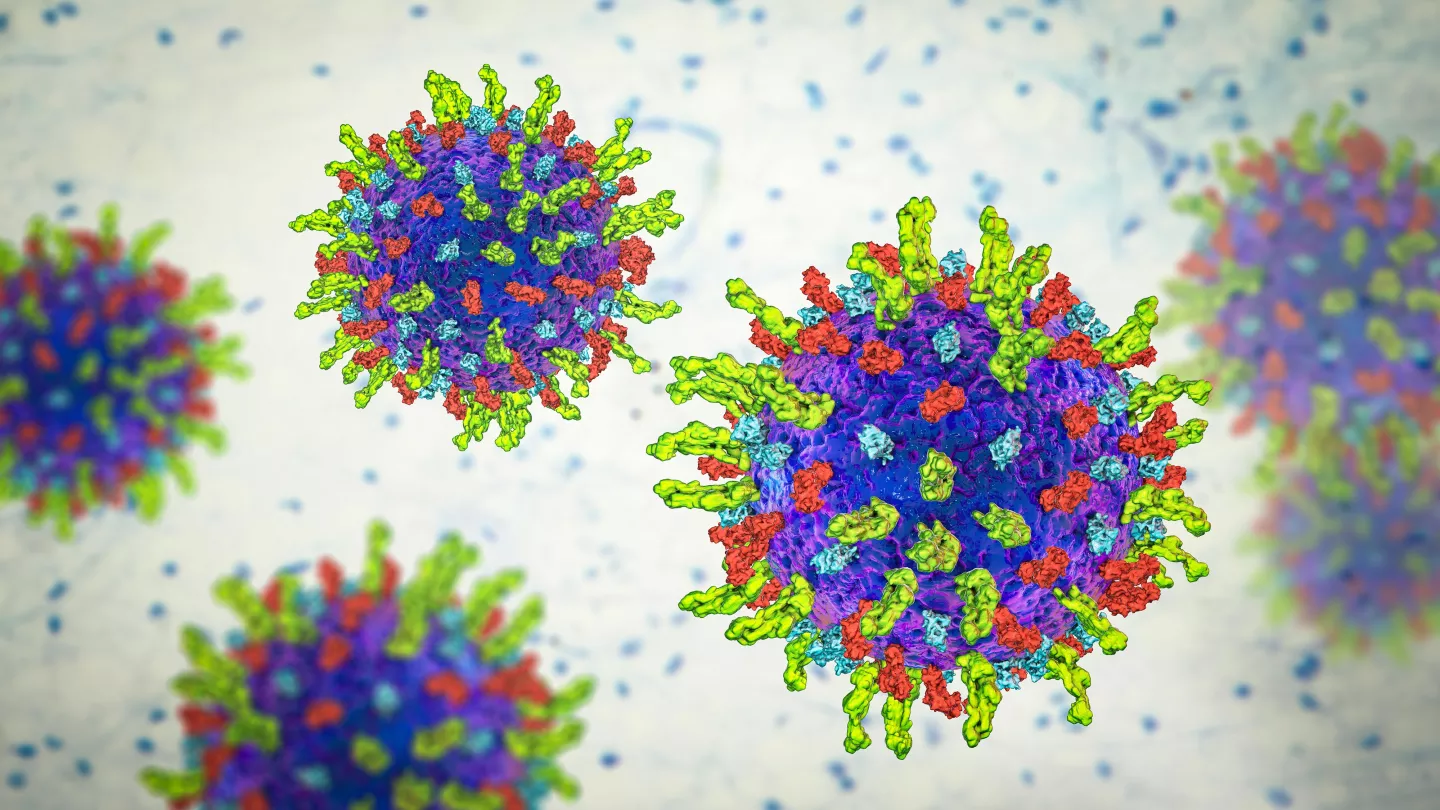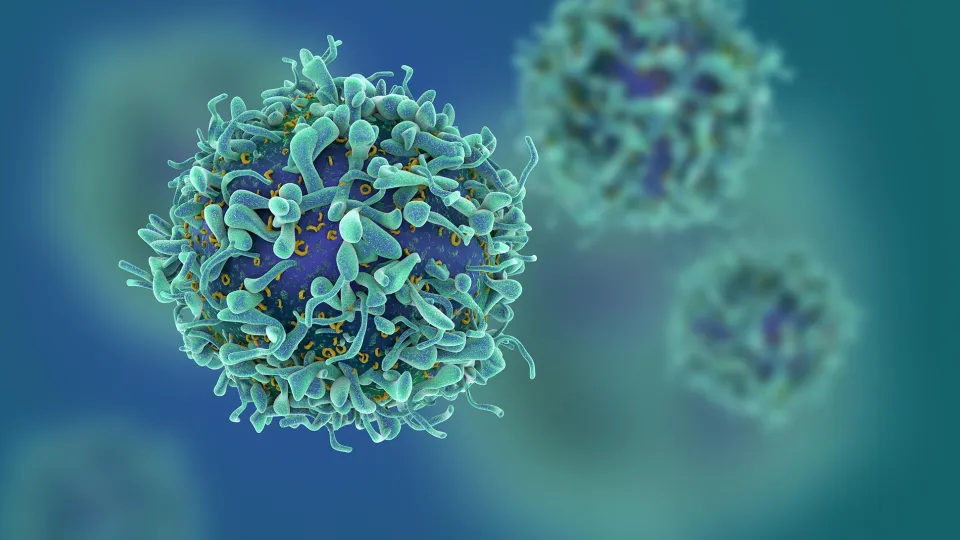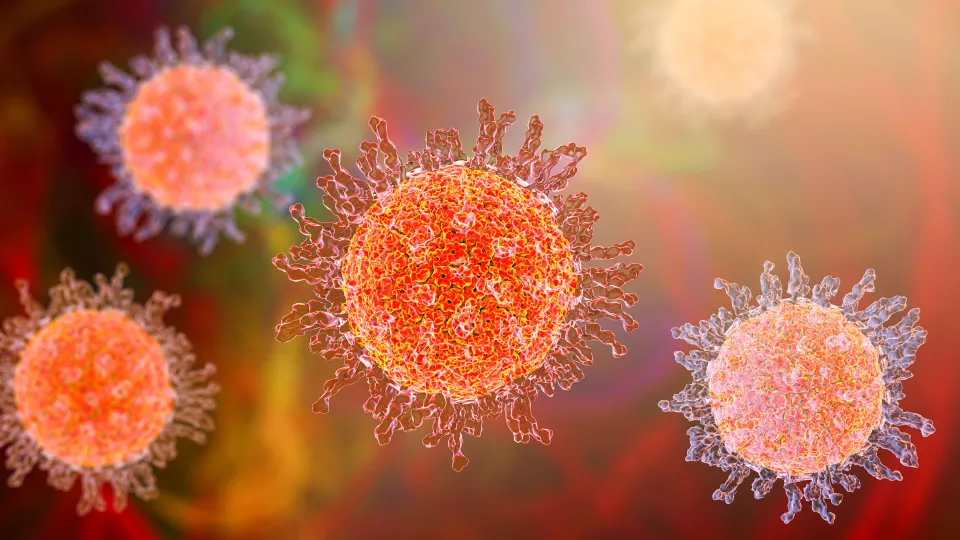News Brief
New Approach to Herpes Vaccine Development
December 6, 2024

Vaccines developed against most infections are designed to elicit antibodies that directly target and neutralize infecting microbes. This approach, however, hasn’t worked well against several major pathogens including herpes simplex virus (HSV). Instead, recent preclinical studies suggest that protecting against such pathogens requires antibodies that mediate antibody-dependent cellular cytotoxicity (ADCC)—the same immune mechanism by which cancer therapies such as rituximab kill tumor cells. Just how these antibodies enable ADCC hasn’t been known.
The National Institute of Allergy and Infectious Diseases has awarded Betsy Herold, M.D., Steven Almo, Ph.D., and colleagues a five-year, $2.5 million grant to investigate ADCC. Dr. Herold’s team has found that HSVs block ADCC responses by binding to and interfering with TNFRSF14, a signaling protein needed for activating the immune cells that mediate ADCC. The researchers want to determine how TNFRSF14 triggers the Fcγ receptor signaling cascade that culminates in ADCC activation. The findings could lead to improved vaccine strategies for HSV and cancer therapy.
Dr. Herold is professor of pediatrics, of obstetrics & gynecology and women’s health, of microbiology & immunology, and holds the Harold and Muriel Block Chair in Pediatrics at Einstein and is vice chair for research and chief of infectious diseases at Einstein and the Children’s Hospital at Montefiore. Dr. Almo is professor and chair of biochemistry, the Wollowick Family Foundation Chair in Multiple Sclerosis and Immunology, director of the Macromolecular Therapeutics Developmental Facility at Einstein and co-leader of the Cancer Therapeutics Program at the National Cancer Institute-designated Montefiore Einstein Comprehensive Cancer Center. (1R01AI187024-01)



